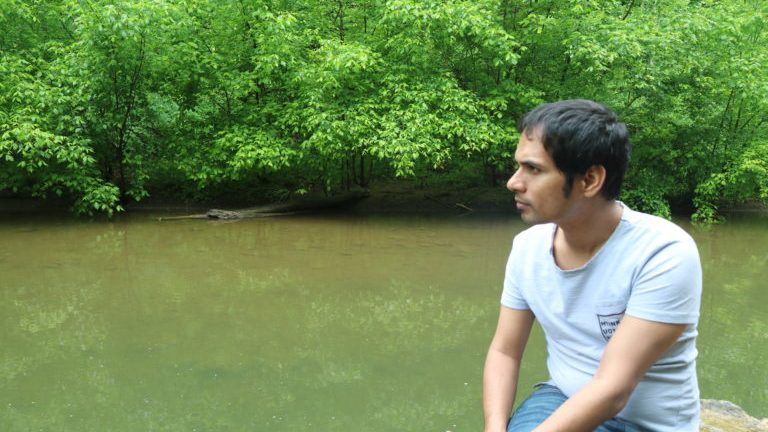Researcher Spotlight – Dol Raj Chalise

2018-19 Global Change Fellow
PhD Student, Department of Civil, Construction and Environmental Engineering
Advisor: Dr. Sankar Arumugam
Every year the Southeast Climate Adaptation Science Center funds a multi-disciplinary cohort of Global Change Fellows representing colleges across NC State University. Here are some highlights about 2018-19 Fellow, Dol Raj Chalise, and the applied research he’s conducting.
About You
What do you study?
I study water, energy, and climate. My PhD research focuses on reservoir operation and environmental flow releases under climate change.
What influenced you to go into this field of study?
During childhood, I witnessed flooding and landslides resulting from the heavy monsoon rains, which washed out many villages in Nepal. This motivated me to pursue civil engineering with hopes to mitigate such events and manage our water resources.
What is your dream job?
My dream job is to manage our water resources to protect public health, mitigate disasters, and meet the demands of growing populations for water and energy needs, while protecting our environment for future generations.
What do you think is the most pressing issue related to global change?
To me, the most pressing issues are to manage our water resources to balance human needs and environment under changing climate. In addition, global change is exacerbating extreme hydro-climatic events (e.g. floods, and droughts), which will pose a global threat.
About Your Research
What are some potential real-world applications of your research?
My research would develop a systematic assessment approach of how to adapt the management of reservoir storage to climate change and increasing water demand to sustain water supply for human and environmental needs. I hope this will help water resources managers to operate our reservoirs to meet human needs for water and power while protecting our environment.
About Your Global Change Fellow Experience
How has the SE CASC Global Change Fellows Program impacted you and your work?
This program has provided me networking and professional development opportunities. For example, the program provided me a travel award to showcase my research findings at the 2018 AGU conference, which was held in Washington, D.C. I also got an opportunity to moderate a panel discussion on “the science behind the sea-level rise and current conditions in North Carolina” in February 7, 2019.
What advice would you give to a student who is interested in getting involved in your field?
Follow your passion for making the world a better place and for making a difference.
